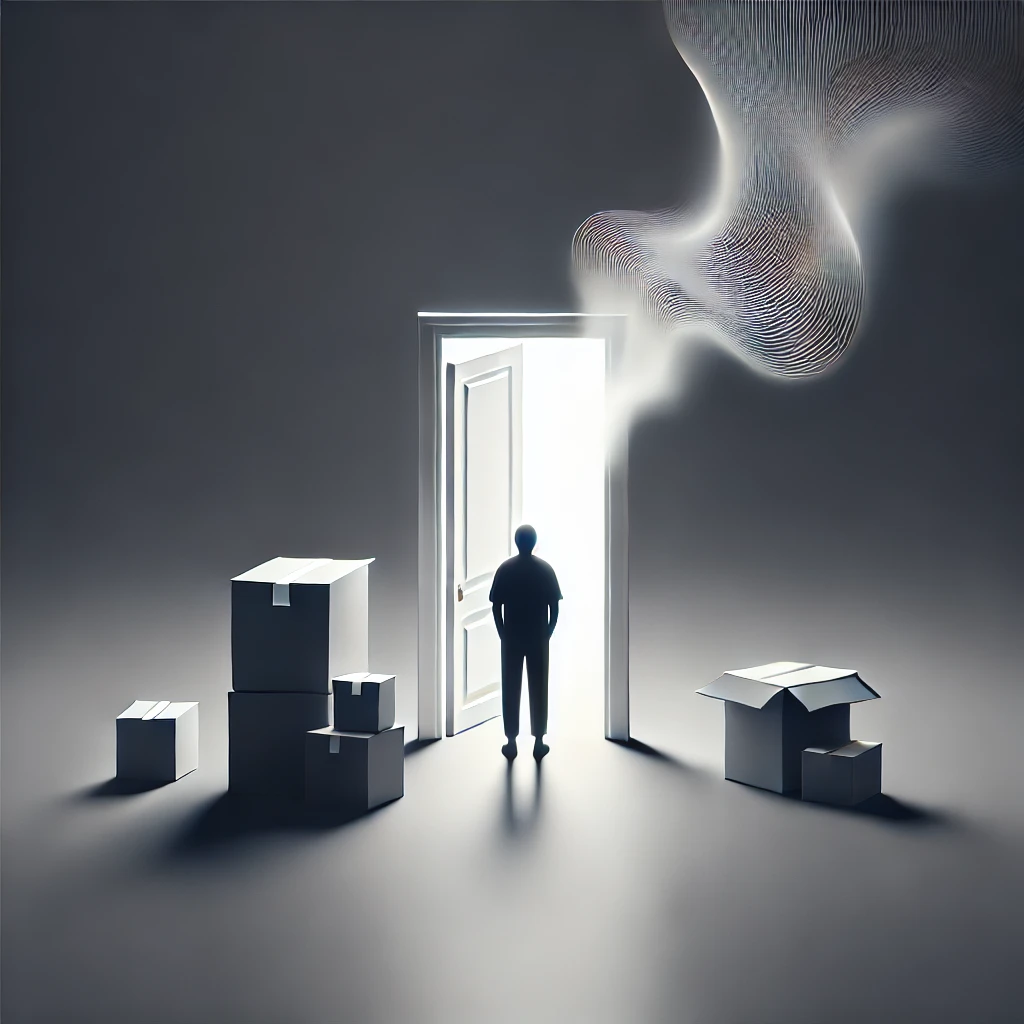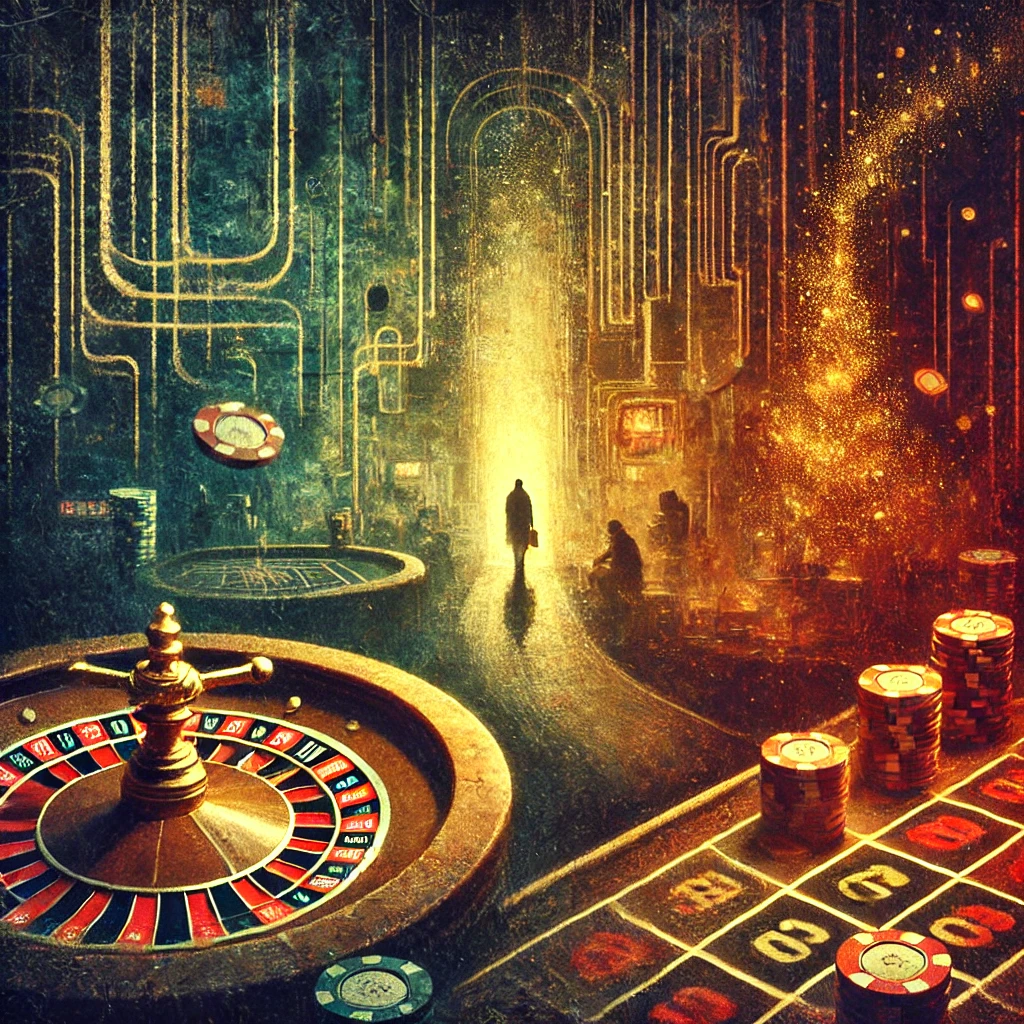Dreaming of Ghosts and What It Says About Your Past and Future?
What Does It Mean When You Dreaming of Ghosts?
Exploring the Spiritual and Psychological Layers
Dreaming of ghosts can feel like stepping into the pages of a mystery novel. Are these fleeting figures a visitor from another dimension, or are they a reflection of your subconscious whispering to you? While some believe that ghosts symbolize spiritual connections or unresolved energy, others interpret them as metaphors for emotional baggage.
Ghost dreams often interact with your personal experiences, beliefs, and emotions. For instance, were you raised on ghost stories that instilled both fear and fascination? Or perhaps you’re navigating a period in your life where past mistakes or repressed emotions are haunting your thoughts.
Common Interpretations of Ghost Dreams
Many theories attempt to decipher ghost dreams, with the most common interpretations including:
– **Unfinished Business**: You may feel like there’s something in your life left incomplete, be it an unspoken apology, a missed opportunity, or suppressed emotions.
– **Fear of the Unknown**: Ghosts can symbolize our anxiety about death, change, or uncertainty.
– **Connection to the Past**: A ghost in your dream might represent someone or something from your past, such as memories you can’t let go of.
What Can You Learn From These Dreams?
Dreams featuring ghosts may act as a **mirror to your emotions**. Ask yourself:
– Are there unresolved conflicts or relationships you need to address?
– Is fear stopping you from embracing change?
Reflecting on these questions can help you uncover deeper truths about yourself.
Unveiling the Symbolism of Ghosts in Dreams
What Does It Mean When You Dreaming of Ghosts?
Dreaming of ghosts can be a hauntingly vivid experience, but what’s lurking behind the imagery? Ghosts in dreams often serve as powerful symbols of unresolved emotions, fragments of your past that may still be haunting your subconscious. For example, have you ever woken up from such a dream feeling as though you’d just had a conversation with someone you’ve lost touch with or even lost forever? It’s your mind’s way of spotlighting unfinished business or unsaid words.
According to renowned psychologist Carl Jung, dreams act as a bridge between the conscious and unconscious, helping you confront internal struggles. When ghosts appear, they might symbolize a call to face past decisions or painful experiences you’ve been avoiding.
The Spiritual Connection: Are Ghosts Trying to Tell You Something?
For many cultures, ghosts are not just symbols but spiritual entities. In dream symbolism, their presence might represent a spiritual connection. Have you ever thought that a ghostly figure in your dream might embody a loved one offering guidance? Whether or not you believe in such spiritual phenomena, it may represent emotional connections urging you to pay attention to your intuition.
Decoding Ghost Symbolism
Here are some common interpretations of ghosts in dreams:
- Unresolved Emotions: Feelings like guilt or grief buried deep in your subconscious.
- Unfinished Business: Personal projects, unfulfilled goals, or lingering relationships.
- Fear of Mortality: Concerns about aging, death, or life’s purpose.
How to Move Beyond the Ghostly Messages
– Reflect: Try journaling your dream to uncover suppressed feelings.
– Resolve: Is there someone or something you need closure with? Start there.
– Consult Experts: Dream analysis professionals or even psychologists can help decode complex emotions.
Why Are Ghosts Haunting Your Subconscious?
Unraveling the Emotional Roots of Ghost Dreams
Dreaming of ghosts often mirrors unresolved emotions. Are you grappling with grief over a lost loved one? Ghostly visions might represent your yearning for closure. Perhaps guilt lingers in your mind, whispering reminders of past mistakes. Ghosts in dreams can symbolize those buried feelings resurfacing for attention.
For others, these phantom-like figures embody the fear of mortality. Facing a ghost in your dream may be your subconscious prodding you to confront life’s impermanence. Similarly, feelings of being “stuck” or stagnant in life can manifest as haunting apparitions, urging you to break free from emotional or mental inertia.
Cultural and Spiritual Perspectives
Ghost dreams aren’t just psychological puzzles; they carry weight in cultural and spiritual contexts. Take this comparison for perspective:
| Culture | Belief About Ghost Dreams |
|---|---|
| Western | Often linked to guilt, unfinished business, or fear of death. |
| Eastern | May signify ancestors seeking acknowledgment or offering guidance. |
| Spiritual | Considered spiritual dreams, representing messages from higher realms. |
What do you believe ghosts represent in your life? Consider your cultural background and internal associations—they might hold the key.
Practical Steps to Decode Ghost Dreams
– Keep a dream journal. Jot down details as soon as you wake up.
– Reflect on your current life challenges: Are you avoiding something?
– Explore meditation or therapy to dive deeper into unresolved emotions.
The next time you find yourself dreaming of ghosts
Interpreting Common Types of Dreaming of Ghosts
Dreaming of ghosts can stir emotions ranging from curiosity to outright fear. By interpreting ghost dreams thoughtfully, you can unlock hidden emotional and spiritual messages that may be influencing your subconscious. Let’s explore some common ghost dream scenarios and their meanings.
1. Being Visited by a Loved One
Dreaming of a deceased loved one can feel deeply personal. These dreams often symbolize unresolved feelings, longing, or a desire for closure. Psychologically, they may reflect your need to process grief or reconnect with cherished memories. Spiritually, some believe these dreams represent an otherworldly connection, offering guidance or reassurance. Ask yourself: Is it time to nurture your inner peace or honor their memory in a meaningful way?
2. Ghosts Chasing You
A ghost chasing you in a dream might reflect avoidance. Are you running from a problem, decision, or emotion in your waking life? On a psychological level, this could symbolize unacknowledged fears or guilt. Spiritually, it can point to karmic lessons. Facing these dreams head-on may inspire growth. What unresolved issue might your mind be urging you to confront?
3. Becoming a Ghost Yourself
Dreams where you transform into a ghost can indicate feelings of invisibility or disconnection. Do you feel unseen or unacknowledged? Psychologically, this might highlight struggles with self-worth. Spiritually, it could signify a transition or transformation, urging you to embrace new beginnings.
Take Action to Decode Your Dreams
Want personalized insights into your ghost dream scenarios? The Dream Interpretation App can help. This user-friendly tool combines ancient wisdom with modern psychology to uncover unique meanings behind your dreams. Start journaling your dreams with ease, track patterns, and gain clarity on spiritual or psychological insights that matter most. Transform your nights into meaningful discoveries
What Are Ghosts Trying to Tell You?
Unveiling Ghost Symbolism in Dreams
Have you ever woken up from a dream featuring a ghost and wondered what it means? Ghost symbolism in dreams often points to emotions lingering just beneath the surface. Dreams of ghosts are not necessarily sinister; they can reveal facets of your psyche you may not consciously recognize. Think of ghosts as messengers—carrying clues about your inner world more than carrying chains from horror tales.
Hidden Fears in Dreams
Ghosts in dreams may represent hidden fears or unresolved issues. Are there aspects of your past you wish to forget? Perhaps that nagging task you’ve been too anxious to face? Ghosts have an uncanny way of mirroring these buried anxieties. For example, if a ghost in your dream reminds you of someone you’ve lost touch with, it might symbolize lingering guilt or unfinished business in that relationship.
— Ask yourself:
– Is there something, or someone, I’ve been avoiding in real life?
– Could this ghost symbolize a fear I haven’t confronted?
Spiritual Messages and Growth
Dreaming of ghosts can also signify spiritual messages, nudging you toward growth. They might be encouraging you to reflect, forgive, or let go. Imagine these dream apparitions as spectral coaches guiding you toward personal enlightenment. If the ghost feels comforting rather than frightening, it could symbolize realigning with your spirituality.
Practical Tips for Interpreting Deeper Dream Meanings
– Keep a dream journal to identify recurring themes or emotions.
– Reflect on any recent events that might connect to the dream.
– Meditate or seek spiritual practices to explore its symbolism further.
Want more insights like this? Dive into our blog
Discovering What’s Missing: The Hidden Meanings Often Overlooked in Ghost Dreams
Unveiling Layers: What Do Ghosts Really Represent?
When you dream of ghosts, it’s easy to focus on fear or unresolved emotions. But have you ever stopped to wonder about the **hidden meanings in ghost dreams**? These spectral encounters can be more than just unsettling—they could be your subconscious whispering about untapped potential. Ghosts in dreams often symbolize **untapped talents**, creative urges, or even personal limitations you’re ready to confront.
Could a Ghost Be Your Forgotten Muse?
Picture a dusty attic filled with treasures you’ve forgotten. Your ghost dream could serve as a “key” to this metaphorical space, highlighting overlooked areas of **creativity in dreams**. Maybe you’ve locked away painting, writing, or storytelling skills that once brought you joy. Ask yourself:
- Is there a creative passion I’ve neglected?
- Am I holding back talents I could share with the world?
Sometimes the “ghost” is not something scary but a veiled invitation to reignite that spark.
The Call to Transform: Ghosts as Catalysts
Dreaming of ghosts can also signify the **need for personal transformation**. Much like ghost stories that hinge on unresolved endings, your dream could be signaling an area of your life you’ve left unfinished. Instead of fearing it, embrace this as an opportunity to confront challenges head-on.
Practical Action Steps:
- Keep a dream journal to identify recurring themes.
- Engage in a creative activity that aligns with a childhood passion.
- Reflect on life changes you’ve been postponing—and take one bold step forward.
Frequently Asked Questions
Question
What do ghost dreams commonly symbolize according to the article?
Answer
Ghost dreams commonly symbolize unfinished business, fear of the unknown, or a connection to the past. They mirror personal emotions, unresolved conflicts, or anxieties about change and uncertainty.
Question
What do ghosts symbolize in dreams according to the content?
Answer
In dreams, ghosts often symbolize unresolved emotions, unfinished business, or lingering feelings such as guilt or grief. They may also represent a spiritual connection or a reflection of one’s fear of mortality. According to the content, their presence is a way for your subconscious to spotlight suppressed feelings or past experiences that require closure.
Question
What do ghost dreams typically symbolize, and how do cultural perspectives influence their meaning?
Answer
Ghost dreams often symbolize unresolved emotions such as grief, guilt, or the fear of mortality. Culturally, their meaning varies—Western beliefs associate them with unfinished business or fear of death, Eastern traditions see them as ancestors seeking acknowledgment, and spiritual perspectives interpret them as messages from higher realms. Reflecting on your personal and cultural context can help decode their significance.
Question
What do ghost dreams commonly symbolize, and how can interpreting them be helpful?
Answer
Ghost dreams commonly symbolize unresolved emotions, avoided issues, or feelings of disconnection. Interpreting these dreams can help uncover hidden emotional and spiritual messages, enabling personal growth, understanding of grief, and the opportunity to confront unacknowledged fears or transitions in life.
Question
What do ghosts in dreams typically symbolize?
Answer
Ghosts in dreams often symbolize hidden fears, unresolved issues, or lingering emotions from the past. They may serve as messengers encouraging self-reflection, forgiveness, or personal growth. Depending on the dream’s context, they could point to anxieties you’re avoiding or even spiritual messages guiding you toward enlightenment.
Question
What do ghosts symbolize in dreams according to this content?
Answer
Ghosts in dreams often symbolize untapped talents, creative urges, or personal limitations ready to be confronted. They can act as veiled invitations to rediscover forgotten passions, spark creativity, or signal the need for personal transformation in areas of life left unfinished.
About the application
Explore Your Inner Universe: Discover What Your Dreams Reveal About You.
Personal Dream Journal
Effortlessly record and track your dreams, creating a valuable log of your nightly subconscious journeys.
Detailed Dream Analysis
Uncover dream meanings, explore symbolism, and learn practical applications for daily life insights.
Psychological Insights
Gain deeper understanding with expert analyses from Freud, Miller, Jung, and others, exploring alternative interpretations.
Pattern Recognition
Identify recurring dream motifs and determine whether your dreams are predominantly positive or negative.



